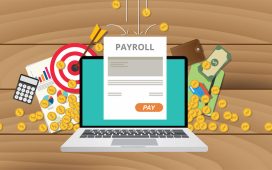Payroll software used to be seen as just a handy tool—something to help crunch numbers, generate payslips, and file taxes a little faster. Fast forward to today, and it’s evolved into something far more powerful. With features like automated compliance, digital onboarding, real-time leave tracking, and seamless integrations, payroll software is starting to look like an entire back-office operation rolled into one platform.
So, the question is popping up more frequently: If software can do so much, do we still need people managing payroll at all? Is HR becoming less relevant, or is this actually the perfect time for the department to shine in new, more impactful ways?
Let’s take a closer look.
What Payroll Software Actually Does
Let’s start by giving credit where it’s due. Payroll software has absolutely transformed day-to-day HR functions. It can:
- Calculate salaries, deductions, and taxes automatically
- Submit statutory filings on time
- Generate payslips with a click
- Track leave balances and claims
- Integrate with accounting and time attendance systems
For SMEs in particular, these features can be a massive time-saver—and cost saver too. What used to take hours or even days now takes just minutes. It also minimises human error, which can be costly when it comes to payroll.
But that’s not the whole story.
The Role of HR Is Shifting, Not Disappearing
The idea that payroll software is “replacing” HR departments is a bit misleading. What it’s really doing is removing the manual, repetitive tasks—freeing HR professionals to focus on higher-level, strategic work.
Think of it like this: when you hire a dishwasher, you’re not firing the chef. You’re just giving them more time to cook.
Similarly, payroll automation tools in Singapore, for example, give HR teams more space to:
- Improve employee engagement
- Lead diversity and inclusion initiatives
- Build stronger hiring processes
- Shape company culture
- Analyse workforce trends and performance
These are not things software can do well on its own. They require human insight, empathy, and critical thinking skills that are more relevant than ever in modern workplaces.
Payroll Experts Still Play a Key Role
Even as software takes over much of the legwork, there’s still a need for people who understand payroll inside and out. Why? Because businesses don’t operate in a vacuum. Labour laws change. Mistakes happen. Employees have questions that can’t be answered by a chatbot.
There’s also the matter of making sure the payroll system is properly configured, integrated with other tools (like time attendance or accounting software), and updated regularly. Someone needs to manage exceptions, double-check reports, and troubleshoot unexpected issues.
In fact, for many companies, the role of the payroll professional is becoming more strategic. Instead of just processing payroll, they’re interpreting data, advising on compensation strategy, and improving financial planning. So no—they’re not going anywhere.
Strategic HR: The Bigger Picture
Payroll software for SMEs is just one piece of the puzzle. Broader HR tech—from recruitment platforms to performance tracking tools—is helping HR teams gather better data and make smarter decisions.
The difference today is that HR isn’t just a support function anymore. It’s becoming a business driver.
Companies that invest in the human side of their operations—wellbeing, leadership development, culture—tend to attract and retain better talent. And guess who’s leading that charge? HR professionals who now have more time, thanks to automation, to focus on strategy instead of spreadsheets.
So, Is HR Becoming Obsolete?
Not at all. HR is becoming more essential, just in a different way than before.
Instead of being the department that handles leave requests and chases timesheets, HR is now expected to:
- Align people strategy with business goals
- Use data to guide decision-making
- Create engaging, inclusive work environments
- Help leaders and teams grow
Payroll software isn’t a threat to HR—it’s a tool that can unlock its full potential. The real challenge lies in how companies choose to adapt. Will they embrace the opportunity to upskill their HR teams and expand their influence? Or will they see automation as a shortcut and miss out on everything that strategic HR can offer?
Final Thoughts
Payroll software may be changing how HR departments work, but it’s not making them obsolete. If anything, it’s paving the way for a smarter, more strategic HR function that can drive real value for the business.
So, rather than asking “Do we still need HR?” maybe the better question is: “How can we use automation to help HR become even more impactful?”
Because when done right, payroll software isn’t replacing humans. It’s empowering them to do more of the work that really matters.






